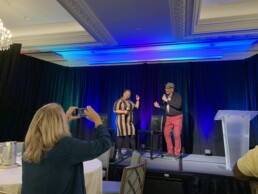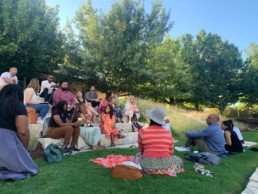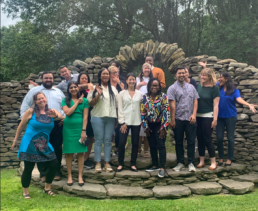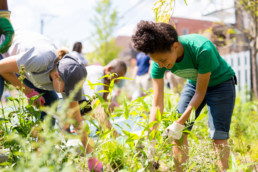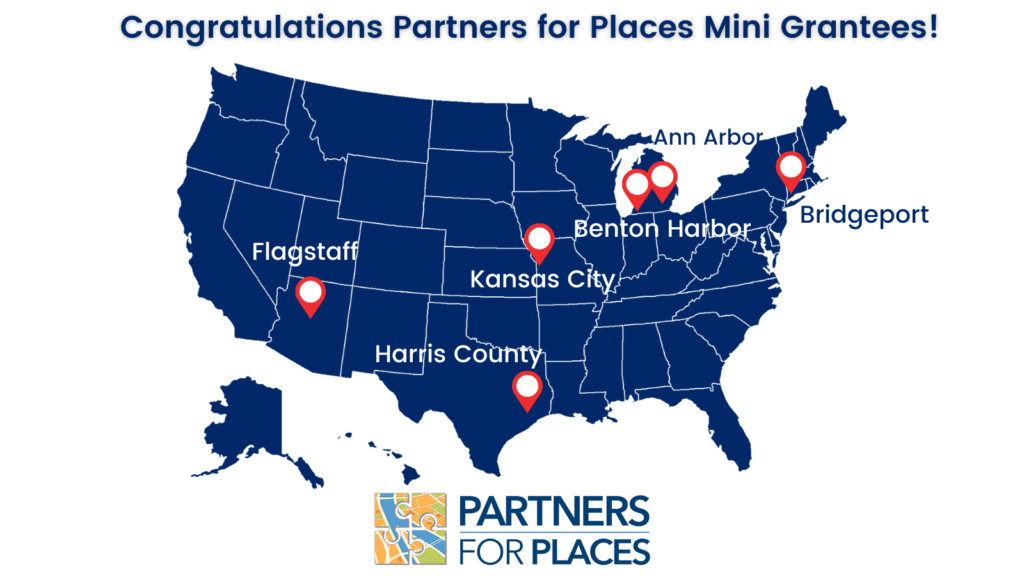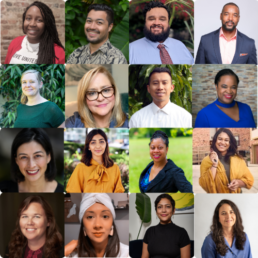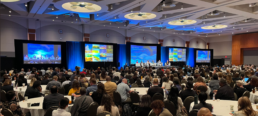TFN Board of Directors: Warm Welcomes & Fond Farewells
BY Pat Smith, President & CEO, The Funders Network
I truly believe in our network's vision to create generations of courageous philanthropic leaders who are engaged, emboldened and equipped to bring about a just society.
That's why I am thrilled to share that TFN's Board of Directors recently welcomed three new members at our annual conference in New Orleans: Isabel Barrios of the Greater New Orleans Foundation; Lisa Jacobson of Boston-based Barr Foundation (and a TFN PLACES Alum); and Nathaniel Smith of the Partnership for Southern Equity in Atlanta, who also served as one of our exceptional #TFN2023 co-chairs.
Rounding out the 2023-2025 slate of directors is Sheena Solomon of The Gifford Foundation in Syracuse, who was elected to a second board term. Sheena is also an alum of TFN's PLACES Fellowship, and currently chairs the PLACES Advisory Board.
The board approved the 2023 – 2025 slate of directors in January, and the slate was elected by virtual ballot among the organizational membership in March.
The board also selected its officers for the coming year:
- Vice Chairperson: Sheena Solomon
- Treasurer: Karla Twedt-Ball, Greater Cedar Rapids Community Foundation
- Secretary: Elizabeth Love, Jacob and Terese Hershey Foundation
Officers were elected for one-year terms, with the exception of Chairperson Don Hickman of the Initiative Foundation, who is halfway through a two-year term.
March also marked a bittersweet milestone, with four of our board members concluding their service:
- Michael Coffey, formerly of the Greater Cincinnati Foundation, who is a PLACES alum and most recent TFN board treasurer;
- Michelle Knapik of the Emily Hall Tremaine Foundation;
- Craig Martinez of the The California Endowment, who is a PLACES alum and a former TFN board chair; and
- Scot Spencer of The Annie E. Casey Foundation, who has also served as a TFN board chair and is an honorary PLACES alum.
I want to offer my heartfelt gratitude to our departing board members for their dedication, support and guidance over the years.
TFN offers funders so many leadership opportunities — not only through board service, but also as members of working groups, steering committees, and other task forces. These roles certainly help the network as a whole, but they are also great ways for you to deepen your connections to each other and to this work.
Please feel reach out to me or a member of our team if you’re interested in serving or getting more involved in our many programs and initiatives.
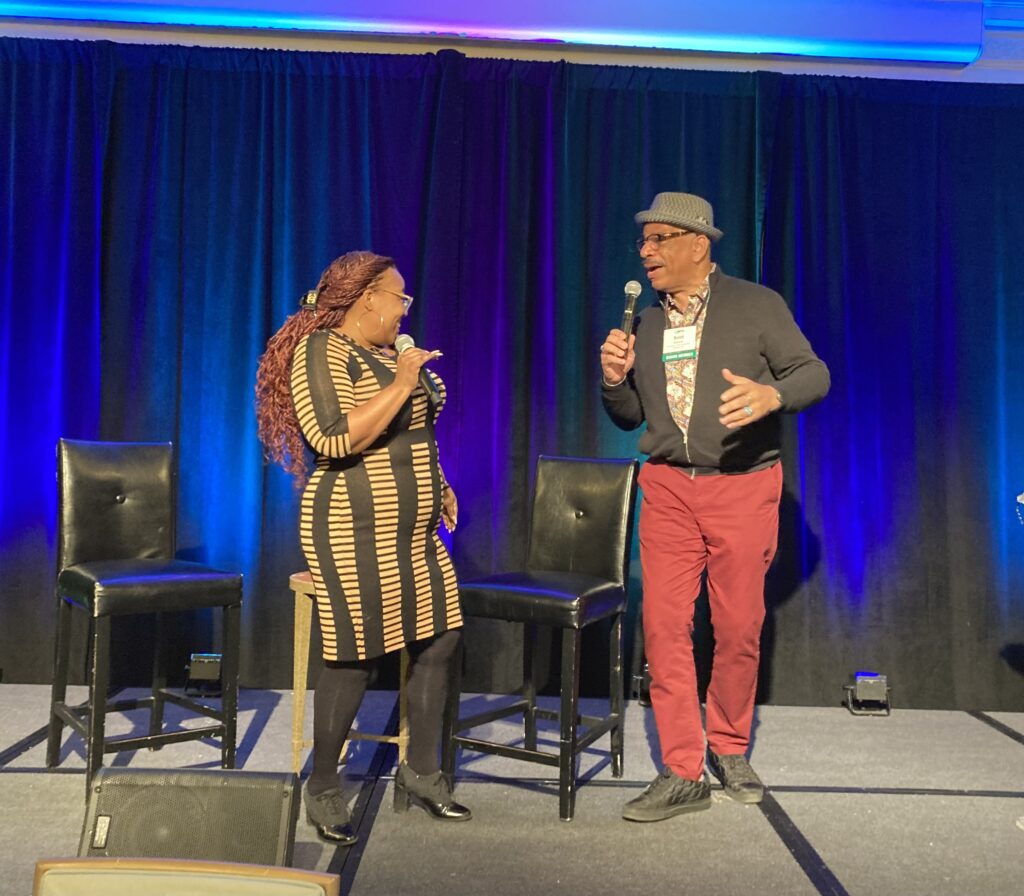
TFN Board of Directors Class of 2023-2025
The Funders Network’s Board of Directors is composed of representatives from across the membership and represents both national and place-based foundations. View the full list of all 13 members of TFN's Board of Directors here.
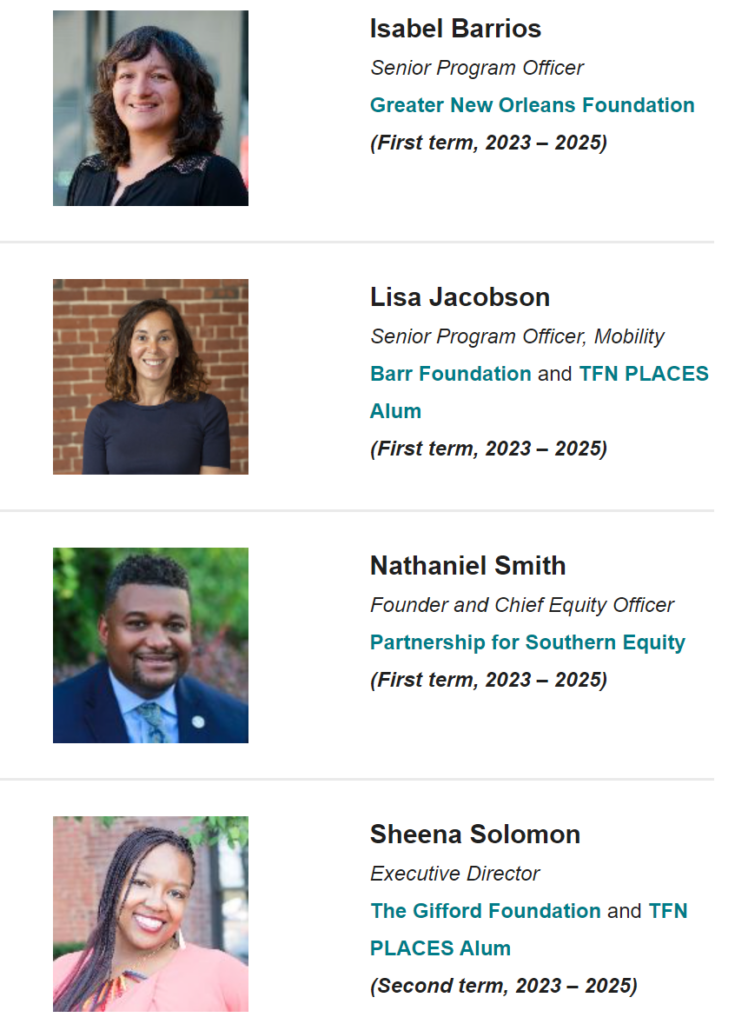
TFN Board Officers
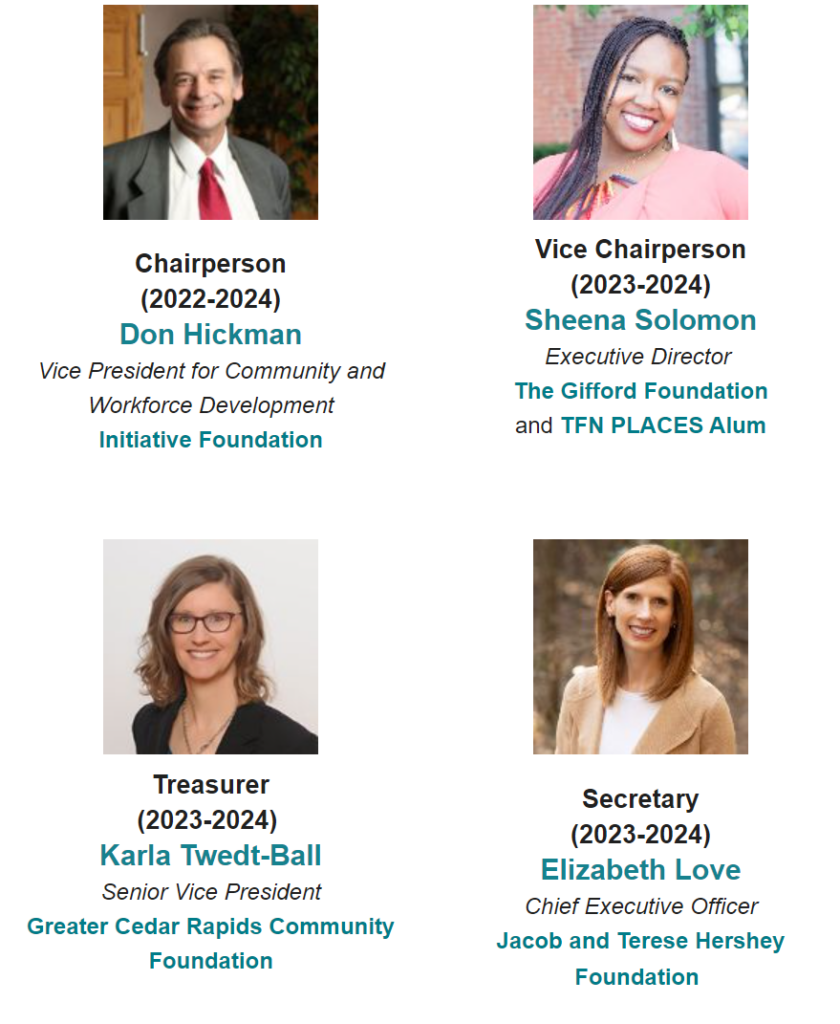
Going PLACES: Reflecting on inclusive strategies to economic growth in Oklahoma City
BY Jessica L. González Martínez, New Growth Innovation Network and 2022 PLACES Fellow
I debated for a while about how I wanted to share the experience I had in Oklahoma City. So much rustled in my head regarding opportunities lost and opportunities forged. Like most communities, there appears to be a centuries-long project of weaving and mending, movements and actions of healing coming to a pause, when building and innovation are placed where rest and relationship are needed. My reflections will primarily be focused on people, those who work each day to document their journey and lay down a foundation for their future. I will touch upon the unique dynamics of small-midsize cities and how OKC is among them to be bold, learn, and grow from how they consider an inclusive strategy to economic growth.
There is no better way to start than at the beginning with First Americans: the Indigenous people who inhabited these lands before the United States was established. They include the Apache, Caddo, Tonkawa, and Wichita tribes. There are also tribes with historical connections, such as the Comanche, Kiowa, Osage, Muscogee (Creek), and Seminole. Collectively, 39 distinct tribal nations reside in Oklahoma. The Choctaw people call the land Okla Homma, meaning “red people,” the place these nations call home (source: First Americans Museum). Over time, the U.S. government forced individual land allotments among Indigenous people, which began to establish adjacent communities with Black Americans of former slave descendants, and those looking for a “promised land.” It has been recorded by the Oklahoma Historical Society that more than fifty identifiable All-Black towns were established between the end of the Civil War and 1920. It’s important to mention the deep, long history between these two groups as they continue to resurrect and heal, and how their familiarity with each other unfolds as time passes.
As I explored the city, remnants of the original land stewards were vividly present. Their stories were told by foreign voices celebrating the importance of Indigenous people, but never their contribution on what makes this land sacred. Storytellers marveled with excitement over the region’s ability to manage their mineral production of oil and gas, leading to the economic wealth that attracted more people to settle in the area. This made the area an attractive destination for migrants and immigrants.
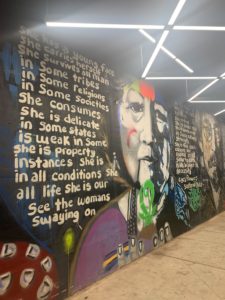
My recollection above touches upon a small portion of the cultures that are now present and call OKC home. Investment strategies, such as the voter-approved penny sales tax initiative to bolster neighborhood and community need, haves supported opportunities for community voice and design for the future of OKC. In its fourth iteration, MAPS 4 is positioned to expand what has been visible redevelopment in infrastructure, beautification, and community reinvestment throughout downtown. Investments like these are giving hope to organizations like The Freedom Center, a historical landmark that was once home to the NAACP Youth Council and OKC’s civil rights movement. An investment of $25 million dollars is affording not only the restoration of The Freedom Center but also the creation of a new Clara Luper Civil Rights Center, honoring the contributions made by Clara Luper in championing civil rights.
As an economic developer, I had a keen eye toward The Freedom Center project. As the tour bus drove along North Martin Luther King Avenue, I began to see the difference between deployment strategies made from the initial onset of the MAPS tax investment, and the latest iteration. Now, I recognize being exposed to a small portion of the program’s history, and it’s clear to me that I have questions about what’s to come during and post MAPS 4. A visible difference can be seen, and felt, from how MAPS began revitalizing downtown, and now expanding deeper to other city limits. Here are my questions moving forward:
- What additional investments will be leveraged to help support surrounding communities adjacent to The Freedom Center?
- Will there be additional considerations for housing, transportation infrastructure, workforce, and small business pathways to those being served and supported through the center’s programming?
- How will a newly focused effort to support neighborhood and community needs help frame future redevelopment efforts and inform other city investments? Will there be a desire to add additional community-led processes across other city services?
- Will there be plans to connect downtown to areas like The Freedom Center, which expands transportation access and increases opportunities for workers and businesses alike?
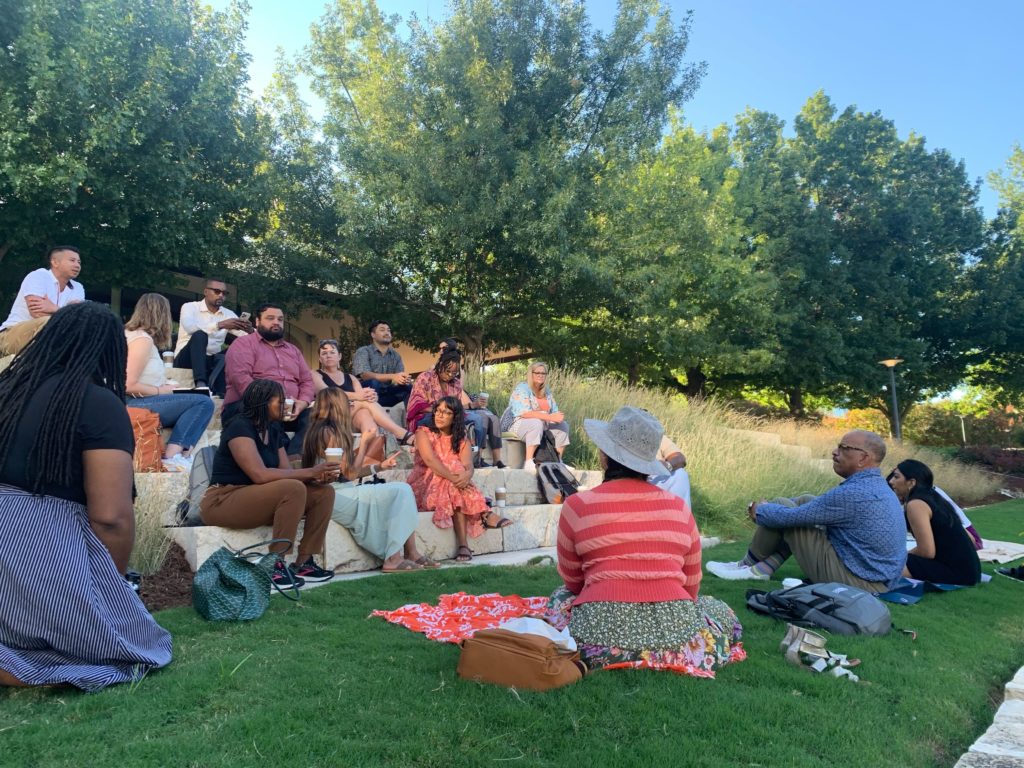
Ultimately, OKC is one of many small-midsize cities that continue to face a myriad of challenges while being openly innovative in attempting to figure out solutions. As they manage through constraints of strengthening their capacities, they are also building a more profound understanding of what it truly means to drive equity and inclusion in their efforts to be competitive in a global market, while maintaining livability and opportunity for their residents. As cities incubate solutions, we must press forward and explore how we can galvanize behind their efforts and continue to strengthen the impact of driving inclusive economic strategies, which measure against outcomes that uplift communities across race, gender, and geographic lines. We are past small tables in small rooms. Now is the time to not only be inquisitive, but also challenge ourselves and the work we are putting into examining how we are serving alongside people and place. Not for the sake of progress, but for the boldness of reshaping community design through the leadership of Black and Indigenous voices.
About the Author
 Jessica L. González Martínez is senior advisor and co-lead for the Inclusive Recovery Initiative project at New Growth Innovation Network. Jessica leads a national community of practice of regional economic organizations working to implement inclusive economic strategies as well as supports insights and innovations which aim to generate deep insights through original research and design innovations to advance the field of inclusive economic development. Jessica brings experiences across workforce, community, and economic development which build upon solutions that work alongside people and the places they reside. She holds a MPA from Arizona State University and a B.S. in American Studies & Sociology from Rutgers University. The is a member of TFN's 2022 PLACES Fellowship cohort.
Jessica L. González Martínez is senior advisor and co-lead for the Inclusive Recovery Initiative project at New Growth Innovation Network. Jessica leads a national community of practice of regional economic organizations working to implement inclusive economic strategies as well as supports insights and innovations which aim to generate deep insights through original research and design innovations to advance the field of inclusive economic development. Jessica brings experiences across workforce, community, and economic development which build upon solutions that work alongside people and the places they reside. She holds a MPA from Arizona State University and a B.S. in American Studies & Sociology from Rutgers University. The is a member of TFN's 2022 PLACES Fellowship cohort.
TFN's 2023 Annual Conference: A message from our TFN2023 Conference Co-Chairs!
We're excited to announce that registration is open for TFN2023! Below is a note from TFN 2023 Annual Conference Co-Chairs are Shawn Escoffery of the Roy and Patricia Disney Foundation, Dan Favre of the Greater New Orleans Foundation and Nathaniel Smith of the Partnership for Southern Equity. Be sure to check out the TFN2023 website for info on registration, learning agenda, safety protocols and more!
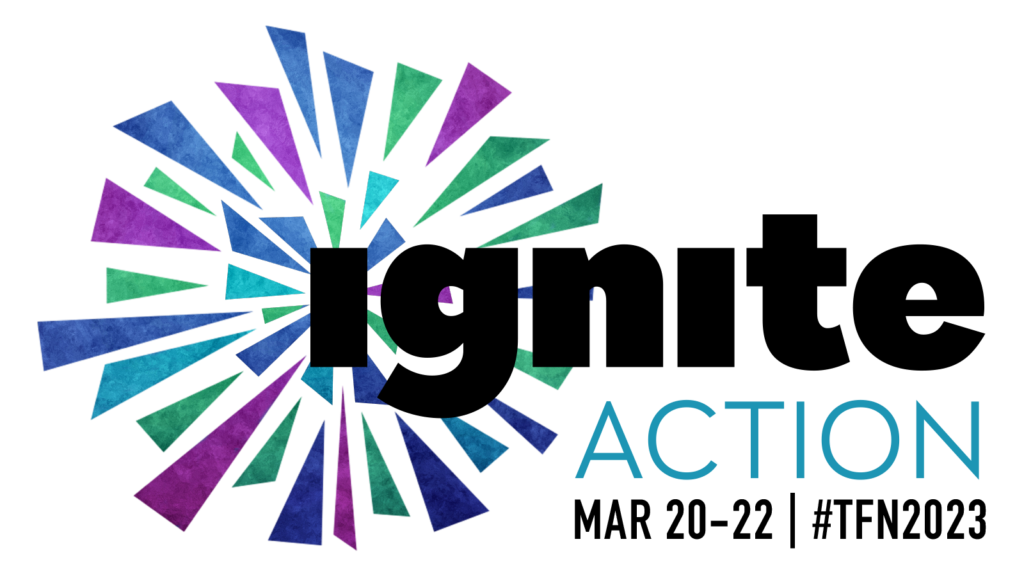
As grantmakers, we are always asking how we can best help energize, support and sustain efforts that move our communities toward racial, economic and environmental justice.
You – and your funder colleagues – are likely also asking those same questions.
We invite you to join us to share, learn and strategize together at The Funders Network’s 2023 Annual Conference, which takes place March 20-22 in New Orleans, La.,
The theme for our 2023 Annual Conference is Ignite Action, which recognizes the need for all of us — as a sector and as individuals — to light the way toward systemic change with urgency and purpose.
TFN’s 2023 Annual Conference: Ignite Action is a chance to reconnect with friends and colleagues in the sector. It’s also a place to identify opportunities for collaboration and action that address the intersecting challenges we face: an escalating climate crisis, an ongoing pandemic, persistent racial injustice and a widening wealth gap — all of which are causing disproportionate harm to communities of color.
The 2023 Annual Conference offers a rich agenda filled with sessions, speakers and workshops that will challenge and inspire us. (You can take a look at our preliminary agenda here.)
New this year: Skill-Building Workshops that offer opportunities for active learning and exploration about topics that will help funders become more equitable, effective and empathetic to the communities they serve and the grantmakers they support.
We’re also expanding the popular TFN Mobile Workshops to include a full day of learning from the places and people of our host city of New Orleans, with an emphasis on community power-building and community-led solutions.
With a rich cultural heritage and geographic location as a coastal city in the American South, New Orleans provides critical context and opportunities to learn as we address pressing issues such as disaster resiliency, environmental injustice, systemic racial inequities and the need for more inclusive economic policies and practices. We’ll hear from thought-provoking voices as we explore innovative, interdisciplinary work that is making an impact in New Orleans and beyond.
New Orleans’ unique flavor will be on display — literally — for the return of TFN’s popular Eat Here! Culinary Showcase, an evening that celebrates the diversity of cultures and points of entry into the food system and highlights locally sourced fare.
As co-chairs of TFN’s signature annual event, we’re thrilled at the chance to connect with the funders, partners and practitioners that make up this amazing network.
We hope you’ll join us in New Orleans to deepen your understanding, expand your own professional networks, and experience the joy of being in community with one another.
See you in New Orleans!
TFN2023 Co-Chairs
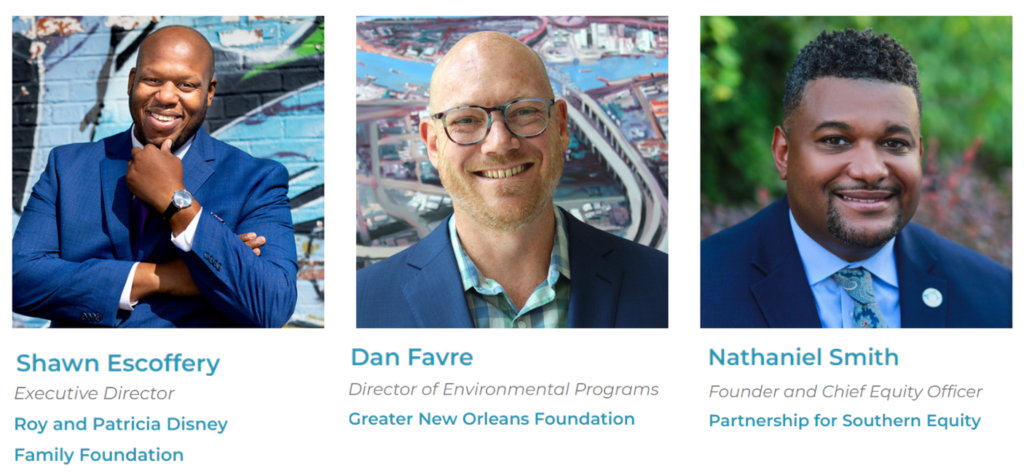
Thank you to our TFN2023 conference planning committee!
BY TFN STAFF
The Funders Network will be in New Orleans for our TFN 2023 Annual Conference: Ignite Action, March 20-22. We’re excited to be able to craft a learning agenda that recognizes the need for all of us — as a sector and as individuals — to light the way toward systemic change with urgency and purpose. We’ll be sharing details about our conference agenda, including break-out sessions, skill-building workshops and site visits, when registration opens in December.
We want to extend a huge thank you to the individuals who served on our planning committee and met with us for two days in September. Because of their commitment to environmental, economic and racial justice, we will be able to create an intentional, inclusive and diverse program agenda.
- Bre’ Anna Brooks, Walton Family Foundation
- Erin Coryell, Margaret A. Cargill Philanthropies
- Shawn Escoffery, Roy and Patricia Disney Family Foundation
- Dan Favre, Greater New Orleans Foundation
- Kevin Gray, Kresge Foundation
- Don Hickman, Initiative Foundation
- Cashauna Hill, Louisiana Fairhousing Action Center
- Arthur Johnson, Lower Ninth Ward Ctr for Sustainable Engagement & Development
- Elizabeth Love, Jacob and Terese Hershey Foundation
- Rukia Lumumba, People’s Advocacy Institute
- Greg Masten, Native Americans in Philanthropy
- Nicole Pritchard, James Irvine Foundation
- Suganthi Simon, Arthur M. Blank Foundation
- Joel Alvarado, Partnership for Southern Equity
- Sheena Solomon, The Gifford Foundation
- Scot Spencer, Annie E. Casey Foundation
- Jacqueline Thanh, VAYLA New Orleans
We are also grateful for the efforts of our three TFN2023 conference co-chairs, who are instrumental in conference planning.

Shawn Escoffery
Executive Director
Roy and Patricia Disney Family Foundation

Dan Favre
Director of Environmental Programs
Greater New Orleans Foundation
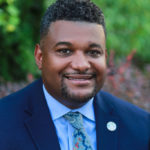
Nathaniel Smith
Founder and Chief Equity Officer
Partnership for Southern Equity
Stay tuned for more details about TFN2023!
Feature image at top: Photo by 12019 is licensed under CC BY-NC-SA
Barr Foundation: New Tool for Climate Nonprofits to Assess Progress on Racial Equity | Cross-post
As a grantee of the Barr Foundation, The Funders Network participated in an organizational racial equity self-assessment commissioned by Barr to help nonprofits working in the climate space reflect on their racial equity efforts and benchmark their progress. In this post, originally shared on the Barr Foundation's site, Climate Director Mariella Puerto shares insights on the self-assessment tool, process and key findings.
BY Mariella Puerto, Barr Foundation
Self-assessment helps organizations evaluate and benchmark efforts to change culture and ways of working; and helps funders better understand partners’ efforts and how to target resources.
In my previous blog post, I discussed the steps we are taking on the Climate Program team to assess how our work can better reflect Barr’s core value to center racial equity.
Open conversations and honest feedback from our grantees have been critical—both in terms of what Barr can change and how we can best support our partners’ related efforts. That’s why we commissioned an organizational racial equity self-assessment tool.
In the fall of 2021, we engaged Maricela Piña and Nayeli Bernal at Community Centered Evaluation and Research (CCER) to develop a self-assessment for organizations to reflect on their racial equity efforts and to help them benchmark progress over time.
In this post, I’ll be sharing information about our process, the tool, and key findings. While we recognize that the self-assessment is just one way to obtain a snapshot of racial equity practices, it is our hope that organizations in the climate movement (including philanthropic organizations) will consider taking concrete steps to examine their own organizational practices and culture. It is also our hope that other funders will dedicate resources to help their grantees align their expressed intentions with their actions. We believe that lasting change will result when organizations in our field are willing to engage in uncomfortable conversations, execute plans to strengthen areas they have identified, and learn from and support each other.
The Process
The tool CCER developed drew upon the contributions of many experts in the racial equity field. As we worked with CCER to design the organizational self-assessment for our grantees, we prioritized creating space for our grantees to shape the tool that they would be using. We formed a compensated advisory team, comprising grantees from across the program to help steer and inform each phase of the process. We also tried to be clear in our expectations: this is a self-assessment, not a test. Honest self-reflection is essential, and organizations will only get out what they put in. Recognizing that people would have questions and concerns, we organized an informational webinar and made ourselves and our consultants available for conversation about the self-assessment.
The Tool
What CCER created was a self-assessment that offered an opportunity for organizations to reflect on their internal and external work to advance racial equity.
We aimed to be comprehensive and gathered information about:
- Respondents’ demographic information, including position, tenure, and experiences at the organization
- Organizations’ internal efforts, such as learning activities, communications, and operations - for staff, board, and committees
- Organizations’ external efforts, such as the organization's competencies on community engagement and inclusion, as well as power and systems analyses
- Organizations’ previous history, including successes, challenges, and opportunities to work on (including places where additional support would be welcome)
In creating a tool to gather all this information confidentially, we ended up with three slightly different versions tailored to the respondent’s role: Leadership, Staff, and Board.
After receiving the completed self-assessments, CCER created an Organization Profile for each grantee which provided a score for various dimensions of their internal and external work, as well as reflection questions to prompt discussion among staff, leadership, and board members.
To learn more about key findings and to explore the assessment, read the full post by Mariella Puerto here.
Photo by bertvthul is licensed under CC BY-NC-SA
We Asked Three Funders to 'Imagine a Day Without Water'
Today, The Funders Network joins elected officials, water utilities, community leaders, educators, and businesses from across the country as part of the seventh annual Imagine a Day Without Water, a nationwide day of education and advocacy about the value of water. Led by the US Water Alliance’s Value of Water Campaign, over a thousand organizations across the country will join Imagine a Day Without Water on October 20, 2022, to raise awareness about the role of water infrastructure in our lives and the importance of investment. The focus of this year’s event is to invite people to take the #OneWaterPledge and learn more about where our water comes from and where our wastewater goes. (Learn more at imagineadaywithoutwater.org and follow the conversation on social media at #ValueWater.)
To honor this day, TFN asked three members of our Urban Water Funders Steering Committee to "imagine a day without water"...
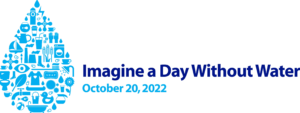
Growing up in Chicago, it was hard for me to understand why anyone in the Windy City lacked access to safe, affordable tap water.
After all, we lived on the shores of Lake Michigan — the fifth largest lake on the planet.
Later, I became more aware of water crises in communities around the country. In the Great Lakes region, where I still live, tens of thousands of people cannot afford to pay their water bills. Some people deal with boil water orders because of contaminants in their drinking water.
This paradox of people who reside in a water-abundant region being unable to afford their water has serious ramifications. Scientists recently discovered that a lack of access to safe, affordable water during the COVID-19 pandemic increased the risk of health problems. One reason: Proper hand washing is critical to preventing the spread of COVID-19 and other viruses.
Ensuring that tap water is safe is only one part of the equation. We also must ensure that water is safe and available to all people, and affordable. In other words, we need water equity.
My employer, the Charles Stewart Mott Foundation, supports over 20 nongovernmental organizations working to address water equity issues in the Great Lakes region. Mott has a two-pronged goal for the work: ensure universal access to safe, affordable water while maintaining the financial health of water utilities.
Achieving water equity is a daunting challenge, but failure is not an option. Access to safe, affordable tap water is essential to public health and personal dignity. No one should be forced to cope with life's daily challenges without safe water flowing from the tap at home. Click on these resources below to learn more about water affordability.
Water Affordability: A Growing Challenge;
Affordable water in the US: A burgeoning crisis;
Drowning In Expensive Water Bills? The Low-Income Household Water Assistance Program Can Help
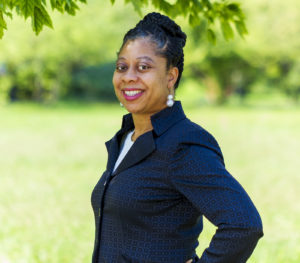
Melanie Moore
Associate Program Officer, Environment | Charles Stewart Mott Foundation
TFN Urban Water Funders Steering Committee & 2022 PLACES Fellow
Hawaiʻi has always been an Island community defined by water.
Native Hawaiian ʻōlelo noʻeau (proverbs) often refer to the idea that water is life. It is said, ola i ka wai a ka ʻōpua — there is life in the water from the clouds.
From our rainforests and streams, fed by rainfall, to our aquifers, which support all who live here, what would these Islands be without fresh water?
At Hawaiʻi Community Foundation, we know that a day without water would mean our houseless communities go without reprieve from rising temperatures. It would mean our Hawaiian kūpuna (elders), who are statistically more likely to be afflicted with diabetes, could not access life-sustaining dialysis. It would mean our mothers who rely on the already scarce supply of formula could not feed their babies.
In Hawaiʻi, water is the essence, the foundation, of wealth. Before trade and tourism, we had water. Water is culture. Water is sustenance. As funders, and catalysts for change, water flows through every sector we touch.
Without it, we would become impoverished of our identity, our existence. There is no grant large enough to replace water, even for a day.
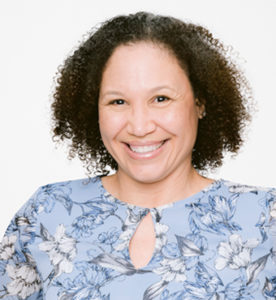 Dana Okano
Dana Okano
Program Director | Hawaiʻi Community Foundation
TFN Urban Water Funders Steering Committee
Sadly, “a day without water” is becoming all too common for Texans.
For many Texans, “a day without water” is not an imagined experience—it’s just another day.
Some communities have never had running water. For the rest of us, experiencing days without water has become the rule rather than the exception. The one-two punch of climate-driven weather extremes and population growth have strained the state’s water supply and aging drinking and wastewater infrastructure.
Texas is more likely to issue a boil water notice than any other state, disproportionately affecting low-income, rural, and communities of color. Texans are also increasingly more likely to lose access to water following natural disasters. During Winter Storm Uri in 2021, 15 million Texans lost access to water. Just five years ago, Hurricane Harvey rendered drinking water unusable from Corpus Christi to Houston and Beaumont.
With increasing urgency, however, communities are responding by building resilience and protecting Texas’s water.
The Cynthia and George Mitchell Foundation envisions a One Water future as a pathway toward water security and sustainability. And our grantees have been doing prodigious work to advance this vision, from coordinating responses to disasters to facilitating One Water adoption across the state.
For example, the National Wildlife Federation (NWF), Texas Living Waters Project, and Bayou City Waterkeeper have pursued freshwater protection through forward-looking policy and planning efforts. Recently, NWF published a report highlighting water loss due to aging infrastructure to help pinpoint areas for investment in upgrades.
West Street Recovery, founded in response to Hurricane Harvey, is working with Houston communities to organize and advocate for equitable water assistance and justice.
Communities Unlimited has been working to help small, rural, and often low-income communities by providing deep technical assistance in accessing state and federal funds for water.
While it’s a reality that many face every day, we’re confident that through the great work of these and other organizations, together, we can protect Texas’s water and equitably meet these increasing demands for water across the state.
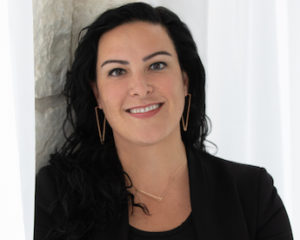 Dr. Emily R. Warren Armitano
Dr. Emily R. Warren Armitano
Director, Land Conservation and Water Programs | The Cynthia and George Mitchell Foundation
TFN Urban Water Funders Steering Committee
About Urban Water Funders
Urban Water Funders, a TFN working group, is a network of place-based and national funders addressing urban water issues in communities across the country. Funders learn together, build relationships and catalyze action.
Currently, funders are prioritizing a variety of solutions to urban water issues — including One Water approaches, natural and green infrastructure and climate resilient strategies — with a strong focus on water equity and vulnerable communities.
If you would like to subscribe to TFN’s Urban Water Funders working group in order to receive newsletters and other resources, click here.
Going PLACES | Reflections from Vermont: What can philanthropy do better?
BY Jennifer Pereira, PLACES Fellow
Arriving in Burlington, Vt., after a five-hour car ride from Rhode Island, I was struck by the beauty of the landscape: the sun shining on Lake Champlain, surrounded by mountains. I was in Vermont for the first of three site visits as one of sixteen PLACES Fellows. PLACES is designed for participants to use learning, coaching and reflections onsite to explore structural racism, community empowerment and grantmaking practices that have equity at their core. At first glance, Vermont — about 94% white and a population of about 624,000 people (a little over half the population of Rhode Island), spread out among a primarily rural context — did not seem the obvious choice to start this conversation. But wait…
Our first meeting was with the Vermont Community Foundation, a community foundation based in Burlington. A person new to the organization told us about the foundation’s development of a new impact area that will focus on equity, anti-racism and democracy as a result of its experience with COVID-19 response grantmaking.The speakers that followed — from the Vermont Land Trust and the Intervale Center — spoke about land, land ownership, access, and asking themselves the question “who benefits” from their work. Both speakers were candid about the need to grow and apply a strong racial equity focus on their role in land ownership — that fundamental inequity that underlies persistent, systemic injustices. The Land Trust engages in land return projects with Indigenous bands; there were three Abenaki nominees for the Vermont Land Trust board this year. The 4,000-acre Intervale Center is historically rich and significant land for the Abenaki, who lead land recognition ceremonies on the property. When we asked members of the organizations what philanthropy can do better to support these efforts, we received these response:““Look in the mirror and recognize the power dynamic.” “Fund organizations that are led by and represent the community being served.”
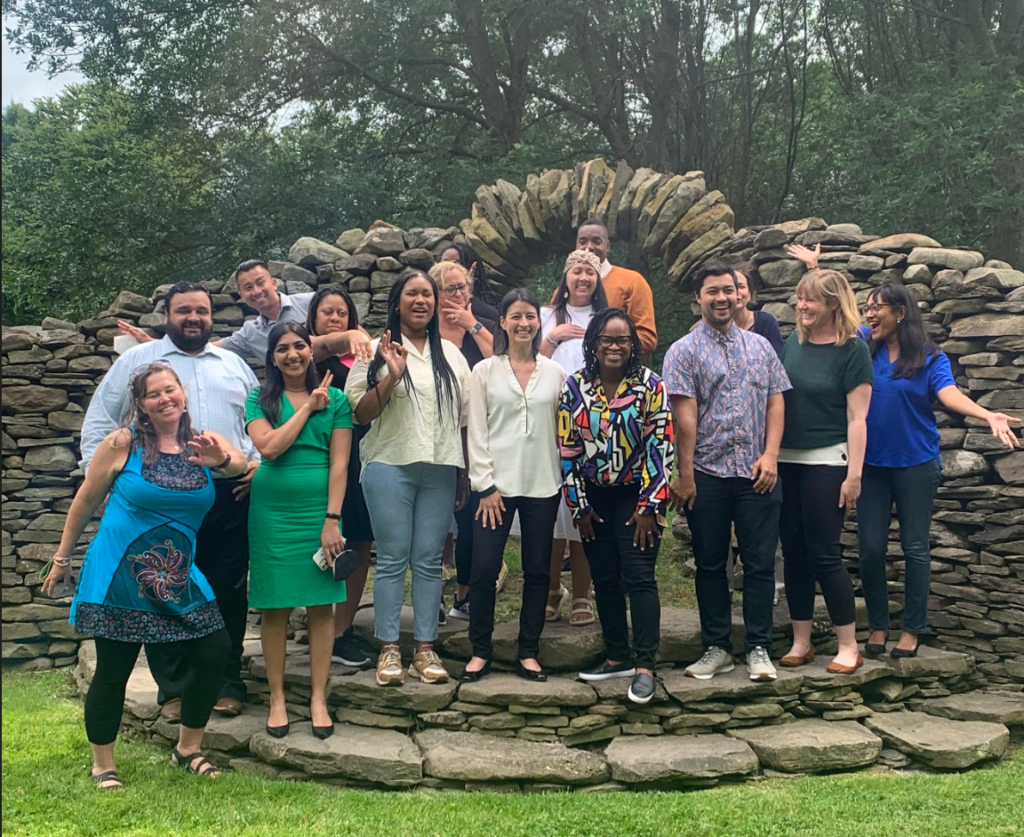
On our second day, we had a thought-provoking conversation focused on environmental justice with State Senator Kesha Ram Hinsdale of the Vermont General Assembly; Ginny McGinn, executive director off the Center for Whole Communities; and Kiah Morris, executive director of Rights & Democracy. These three impressive speakers talked about successes and models from their work,including the passage of the first environmental justice law in Vermont in 2022 and the creation of REJOICE (Rural Environmental Justice Opportunities Informed by Community Expertise) to engage people most impacted by environmental injustice in policy change. This and the Climate Council raised the importance of compensating people for their time and valuing community expertise. They also spoke about the challenges: Burlington sees huge racial disparities in outcomes for white people and communities of color, notably in homeownership. Only 21.1% of the Black population in Burlington owns their own home, far below the national numbers.
When asked, what can philanthropy do better?
- Unrestricted funds are a blessing
- Trust the people doing the work
- Show up, step back, and trust
- Support healing and self-care for frontline advocates
- Step up, not lean away, from funding racial and social justice
A conversation with City Councilor Ali Dieng, who cofounded the New American Advisory Council, and Brian Pine from the City of Burlington’s economic development office, focused on housing and included a discussion of the Community Land Trust model. This model provides a pathway to homeownership for historically marginalized communities, including the New American population.
The visits and conversations told us a different story about Vermont than is evident at a first glance and demonstrated the complexities of place. Of community. The people we met were inspiring — and exhausted. Over the course of about 56 hours in Vermont, multiple site visits and presentations, and provoking debriefs with my companions on this year-long Fellowship journey: fifteen remarkable individuals and our fearless and supportive guides, one recurring message kept playing out in these discussions and in my thoughts: What can philanthropy do better?
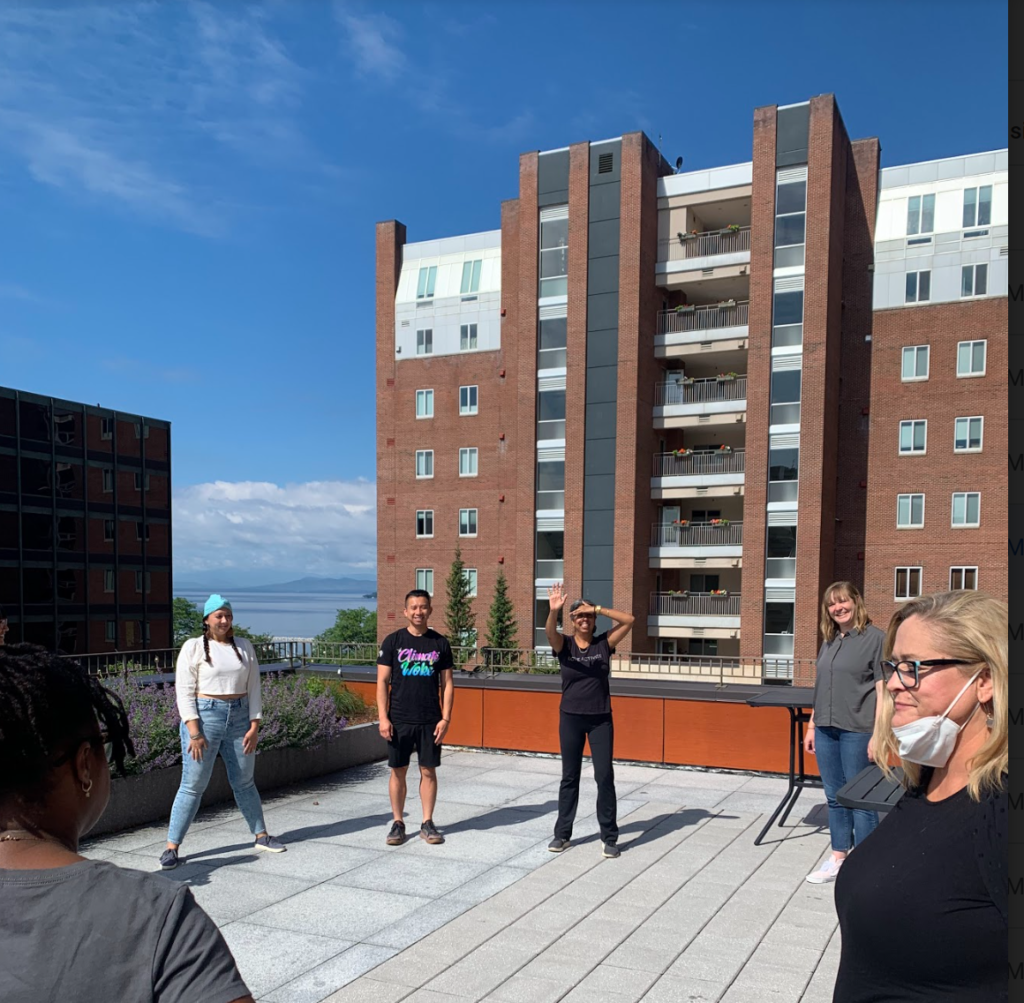
All of our site visits were unpacked and examined through conversations among the Fellows, facilitated by the gifted Bina Patel. What can philanthropy do better? We need to ask the question, how does the community envision how they can thrive? We can ask this question, and listen and heed the response. We need to do better, “because we bear witness..
This first PLACES site visit gave me the opportunity to challenge assumptions, learn new perspectives, and reflect on what I, in my role in philanthropy, can do better. In Vermont, 94% of the population is white, and we learned that 75% of traffic stops are of Black men; In Rhode Island, the racial gap in homeownership is wider than the national average; Black and Hispanic children in Rhode Island are more likely than White children to live in neighborhoods that lack the resources needed for them to grow up healthy and successful. These systemic inequities are real, deeply rooted, and are the cause of unspeakable trauma and harm to people — the people we met in Vermontnd the people we know in our communities. From re-orienting the conversation so that it is community-led and driven, to showing up in the difficult conversations, I’ll carry this experience with me and focus on action.
What will I do better?
About the Author
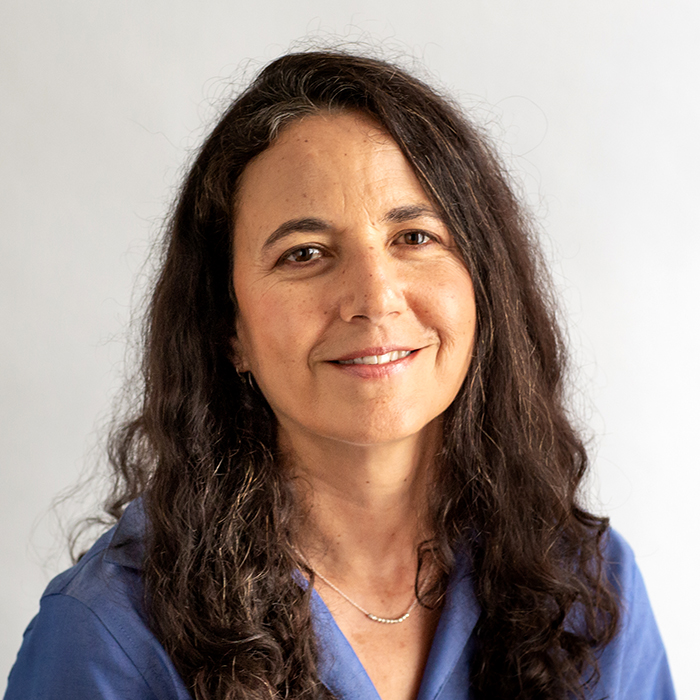
Jennifer Pereira is Vice President of Grants & Community Investments at the Rhode Island Foundation. She is also a member of TFN's 2022 PLACES Fellowship cohort.
Congratulations to our Partners for Places Mini Grantees!
BY TFN STAFF
The Funders Network, in partnership with the Urban Sustainability Directors Network, is excited to announce the latest round of Partners for Places Mini Grants. These grants are intended to help local governments, place-based funders and frontline communities build relationships, align project ideas, and center racial equity in water, sustainability and climate action work.
The Partners for Places Mini Grants are designed to spark new relationships or deepen existing connections that will help communities develop a successful Partners for Places project application in the future.
Partners for Places is a matching grant program that improves U.S. and Canadian communities by building partnerships between local government leaders, community groups and place-based funders. National funders invest in local projects developed through these partnerships to advance efforts to create communities that are sustainable, prosperous and just. These sustainability efforts take place from coast to coast, in communities both large and small, and focus largely on empowering and engaging low-income neighborhoods.
MEET THE NEW GRANTEES!
These six communities are the latest recipients of the Partners for Places Mini Grants:
Ann Arbor, Mich.:
Amount: $15,200
Project title: Developing Legal Services Models for Community Stabilization
Project description: “Partners will develop a shared model of legal counseling for income-qualified homeowners to stabilize families by reducing the risks of displacement and asset loss while maintaining weatherization investments. Outreach strategies that build trust and participation will be developed with the frontline community and test participants.”
Frontline community groups: Legal Services of South Central Michigan, Community Action Network’s Bryant Community Center, and Housing Bureau for Seniors, Michigan Medicine
Funder partner: Ann Arbor Area Community Foundation
Benton Harbor, Mich.:
Amount: $15,000
Project title: Sustainability Office in Community Impacted by Emergency Management
Project description: “To facilitate stakeholder engagement and strategic planning for creation of a sustainability office that will provide local and regional leadership on GSI implementation, climate resilience, restorative community partnerships, and Justice40 execution in an environmental justice community.”
Frontline community groups: Project NEED Foundation and Michigan Sustainable Business Forum
Funder partner: Americana Foundation
Bridgeport, Conn.:
Amount: $20,000
Project title: Changeport: Accelerating Environmental Justice in Bridgeport & Beyond
Project description: “Seaside Sounds Club, with its multitude of collaborators, will innovate community engagement and bi-directional educational outreach in Bridgeport, Conn., and beyond, to powerbuild and prepare frontline communities to apply for newly available federal and state funds for environmental justice and climate resilience projects.”
Frontline community group: Seaside Sounds Club
Funder partners: Emily Hall Tremaine Foundation and Sustainable CT: Community Match Fund
Flagstaff, Ariz.:
Amount: $20,000
Project title: Mapping Flagstaff’s Green Spaces and Schoolyards
Project description: “Project partners will map and assess community infrastructure, access and needs in relation to green spaces/schoolyards. In response to Flagstaff’s Climate Action and Neutrality plans, this project will advance policies that promote racial and socioeconomic equity for the most vulnerable segments of our community to ensure climate justice for all.”
Frontline community groups: Ita Hopi Lavayi, Flagstaff Unified School District, and Terra BIRDS
Funder partner: Arizona Community Foundation of Flagstaff
Harris County, Texas:
Amount: $20,000
Project title: Equitable Climate Justice Partnerships in Harris County
Project description: “First, funding will go towards a local expert to help the three partners build a foundation of equitable collaboration. Second, funding will go towards the co-production of an equity framework and co-hosting preliminary community conversations for the soon-to-be developed Harris County Climate Justice Action Plan.”
Frontline community groups: The Coalition for Environment, Equity, and Resilience (CEER)
Funder partner: Jacob and Terese Hershey Foundation
Kansas City, Mo.:
Amount: $20,000
Project title: From Coal to Solar in KC’s Historic Northeast
Project description: “In response to Kansas City’s Climate Protection and Resiliency Plan, the purpose of this grant is to form a coalition to expand solar availability to low-income residents who have been most impacted by Kansas City’s only operating coal-fired power plant.”
Frontline community group: Jerusalem Farm
Funder partner: Marion and Henry Bloch Family Foundation
ABOUT PARTNERS FOR PLACES
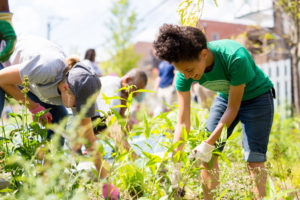
To date, Partners for Places has awarded more than $9 million across the U.S. and Canada in this successful matching grant program, leading to more than $19 million in investments.
The matching grant program brings national funder investors together with place-based funders to support equitable and sustainable climate action and green stormwater infrastructure projects. The program is currently supported by six investor foundations: The Allen H. and Selma W. Berkman Charitable Trust, The JPB Foundation, The Kendeda Fund, The Kresge Foundation, the New York Community Trust, and the Pisces Foundation.
Read about the latest round of Partners for Places matching grant recipients here.
To learn about the previous round of Partners for Places Mini Grants, visit here. (All grant announcements can be found on the Partners for Places webpage.)
For questions about the Partners for Places Mini Grants or matching grants program, please reach out to Ashley Quintana.
PARTNERS FOR PLACES FAQ’S
→ Where is Partners for Places making an impact?
Read previous grant announcements and explore the Partners for Places Grantee Map here.
→ Where can I learn about completed Partners for Places projects?
Visit the Partners for Places Idea Bank to explore what grantees are doing, learning and sharing.
For more information about Partners for Places, please reach out to Ashley Quintana, ashley@fundersnetwork.org.
Are you the Future of Philanthropy? Become a TFN 2023 PLACES Fellow - Applications Now Open!
BY TFN STAFF
We’re thrilled to announce that applications for TFN's 2023 PLACES Fellowship are now open!
PLACES — which stands for Professionals Learning About Community, Equity and Sustainability — is a year-long learning journey designed to help grantmakers embed the values and practices of environmental, economic and racial justice into their work.
We encourage you to apply for the PLACES Fellowship if you’re looking to:
- Expand your understanding of systemic racial, social and economic inequities and their impacts on policy, culture, communities and climate.
- Acquire the tools and resources to embed the values of equity and justice in your work as a grantmaker.
- Explore and challenge your own biases and blind spots, regardless of your background, about who you are and how you create change.
- Forge deep connections with other leaders in philanthropy who are deeply committed to turning ideals into outcomes.
- Invest in your personal and professional leadership growth.
The deadline to apply is Nov. 18, 2022
→ View application and apply today!
About the 2023 PLACES Fellowship
The 2023 PLACES Fellowship will be an in-person experience, although we recognize that the ongoing coronavirus pandemic may require us to be flexible. (Applicants will be asked to complete a short COVID-19 Comfort and Safety Survey as part of their application.)
Key 2023 Fellowship Dates*
March 20-22: TFN Annual Conference, New Orleans
April 19-21: Kickoff Site Visit
June 21-23: Site Visit #2
Sept. 20-22: Site Visit #3
Nov. 15-17: Site Visit #4
*Dates are subject to change. Locations TBD.
Fellowship Fees
For accepted participants, the following fees will apply:
TFN Members: $750
Non-members: $1,250
Fees help support the programmatic and operational costs associated with the fellowship, including but not limited to, speaker honoraria, facilitator fees and group transportation. Fellows will be responsible for travel costs and hotel accommodations for site visits. (Limited travel sponsorships will be available to offset travel costs and are subject to availability.)
COVID Contingencies
Given the uncertainties of the ongoing coronavirus pandemic, TFN remains committed to prioritizing the safety of our fellows and the communities they serve.
We will be closely monitoring recommendations and mandates from local health officials as well as the Centers for Disease Control and Prevention as we plan for the 2023 PLACES Fellowship.
Please review TFN’s Covid Health & Safety Protocols for more information about our current policies.
About PLACES

TFN’s mission is to leverage philanthropy’s unique potential to help create communities and regions that are sustainable, prosperous and justice.
A key element to this organizational commitment: creating generations of courageous philanthropic leaders who are engaged, emboldened and equipped to bring about meaningful change.
Over the past decade, PLACES has welcomed 180 leaders in philanthropy committed to deepening their understanding of environmental, economic and racial justice. Translating those skills and knowledge into grantmaking and community engagement practices has taken on increased urgency as we navigate multiple, intersecting challenges: an escalating climate crisis, an ongoing pandemic and a widening wealth gap, all of which are causing disproportionate harm to communities of color.
Recent cohorts have addressed issues impacting disenfranchised communities, including structural racism, gender justice, health equity, environmental sustainability, economic development and community engagement — asking difficult questions and exploring uncomfortable truths along the way.
→ Meet the 2022 PLACES Fellows (pictured above on their site visit to Vermont.)
Grow Your Network!
By becoming a PLACES Fellow, you’ll also have opportunities to connect and collaborate with peers in the sector through the PLACES Alumni Network.
This amazing network is comprised of alums from all corners of the United States and Canada, representing national, regional, family, corporate, and community foundations as well as philanthropy serving organizations and other funding institutions.
PLACES X: Stories of Impact

For the 10th anniversary of TFN’s PLACES Fellowship, we asked PLACES alumni to share what inspires, motivates and challenges them in their efforts to embed the values of racial, social and economic equity into their work.
They shared their experiences through PLACES X: Stories of Impact, which includes essays and videos.
→ Explore the full multimedia project here.
Going PLACES Blogs

After each PLACES site visit, we ask the fellows to reflect on their experiences in our blog series Going PLACES. Check out some highlights from our PLACES alumni.
→ Going PLACES - Trading Palm Fronds for Maple Leaves: What Two Demographically Distinct States can Learn from Each Other | By Xan Avendaño, 2022 PLACES Fellow and Program Officer at The Harry and Jeanette Weinberg Foundation.
→ Going PLACES: What the Newark Rebellion can teach us about Philanthropy | By Grace Chung, Senior Community Development Officer, LISC New York City and 2019 PLACES Fellow.
→ Going PLACES: Becoming A Change Agent | By Andrea Hulighan, Director, Strategic Initiatives, The Winston-Salem Foundation, and 2018 PLACES Fellow.
Making the Moment Count: Reflections on Philanthropy’s Role in Equitable Implementation of Historic Water Investments
BY KERRY HASTINGS, The Funders Network
I had the wonderful opportunity this fall of attending the US Water Alliance’s One Water Summit in Milwaukee, Wisc., joined by five of our Urban Water Funders Steering Committee members: Alex Paxton of the Water Foundation; Dana Okano of the Hawaii Community Foundation; Yeou-Rong Jih of the Kresge Foundation; Emily Warren of the Mitchell Foundation, and Maggie Rwakazina of Spring Point Partners. It was a rich time of deepening relationships, learning together, and preparing for the years ahead of historic public investment in water infrastructure.
What stood out initially was the cross-sectoral nature of the conference. To be in a room mixed with utility leaders, other municipal leadership, community advocates, NGOs and funders led to rich and well-rounded discussion. In a moment where billions of dollars will be flowing through public agencies, community voice must be centered, and the conference allowed for fruitful discussion between the various stakeholders that will be involved in making this moment count.
While the amount of federal dollars is tremendous, there are gaps and blind spots that public spending can’t or won’t address. Here are my reflections from the conference on some of the most important roles for philanthropy to play in supporting equitable implementation:
- Frontline communities must guide the way. Federal water investments will certainly get to communities who are already well-resourced. The challenge is getting them to communities who need it most yet are least equipped to apply (such as small and/or rural communities) or those whose neighborhoods are less prioritized (such as low-wealth neighborhoods within major cities). Ensuring that community-led organizations have the resources they need to understand and advocate within the system ensures that they will see projects come to their communities that bring benefit and not harm. They can shape project proposals, apply for funding, advocate for more equitable criteria to distribute the monies, and hold elected officials accountable. In addition, their involvement is critical to think through how to avoid unintended consequences that investments often bring to low-resourced communities, such as gentrification and displacement.
- Supporting collaboration and stakeholder alignment. This is not an either/or moment, it is a both/and one. Funders cannot invest in just one stakeholder or strategy while ignoring the others. There are several players that will be involved in ensuring equitable implementation: states and municipalities, utilities, organizers and advocates, funders, technical assistance providers and engineers. For the most effective outcomes, communities need a healthy ecosystem where stakeholders can communicate, align and build consensus when possible. Philanthropy can play a role in helping to build this table and paying particular attention to centering community voices and ensuring that lived experience within a community is as highly valued as technical and engineering experience. While not every stakeholder can or should be funded by philanthropy’s limited dollars, investing in bringing folks together will prove valuable.
- The workforce conundrum is front and center. The “silver tsunami” of the water workforce is not a new challenge but has been exacerbated by COVID-related retirements. On top of that, the influx of billions of dollars means that new staff are needed: to apply for the money, manage and distribute the money, build the projects and maintain the projects. New staff are needed everywhere — within states and cities, at utilities, engineering firms, and for community-led work — and yet the water sector was already struggling to recruit and maintain a skilled workforce. Funding organizations that are focused on workforce development in partnership with the water sector can be critical for equitable implementation, so that a diverse and trained workforce can reflect the community’s values in overseeing water infrastructure projects. This investment can happen through investing in NGOs that train workers, especially those who are disenfranchised such as formerly incarcerated people. It can also build leadership for existing water leaders or help build pipelines from community colleges into the water sector.
- Nudging Towards Nature-Based Solutions. When there is an influx of money that is expected to be used quickly, most humans would defer to what they are used to. In the water sector, that is grey infrastructure. The research show that multi-benefit, nature-based solutions such as green stormwater infrastructure (GSI) can provide ecological, economic and social benefits, yet states have previously allocated only 3% of their State Revolving Funds towards GSI. Funders can continue to support advocacy, technical assistance and other program support (such as TFN’s Partners for Places GSI grants) to continue to promote these important solutions to address flooding and provide healthy community spaces.
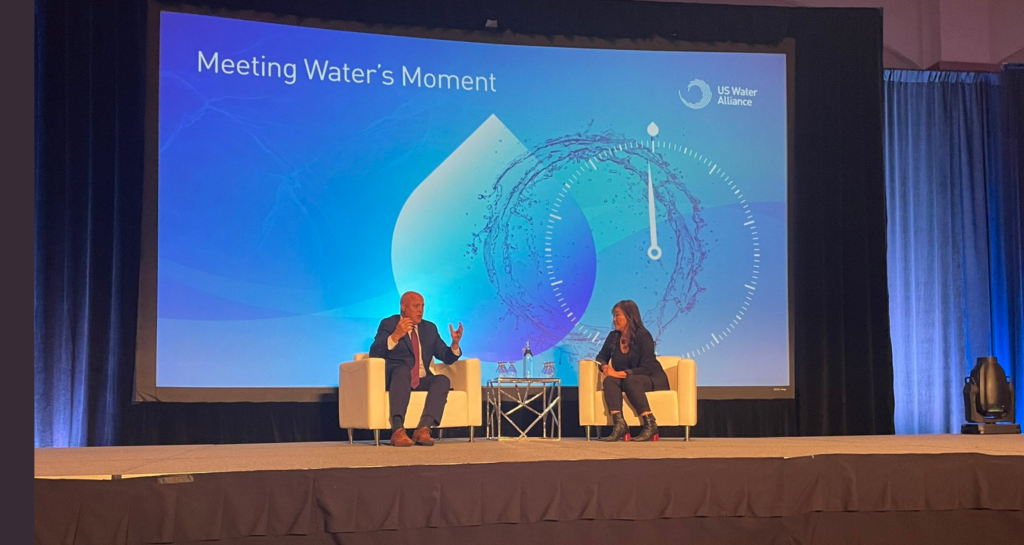
I look forward to hearing from all of you how these resonate with your work and investments, and what other strategies you have identified as the most strategic for your foundation.
Finally, I want to give a shout out to two of this year’s Water Prize winners that were honored at the summit. Receiving the Outstanding Public Sector Organization award was the City and County of Honolulu, whose amazing work you may have heard about at our 2022 UWF/GREEN Joint Convening earlier this year. UWF Steering Committee member Dana Okano of the Hawaii Community Foundation was a key part of this work. The Outstanding Nonprofit Organization award went to Healthy Community Services in New Orleans. Healthy Community Services is one of the frontline community groups collaborating on a project to create equitable green designs for NOLA neighborhoods, a project that has received a Partners for Places Mini Grant.
I look forward to learning together at next year’s One Water Summit in Tucson, Ariz.!
About the Author
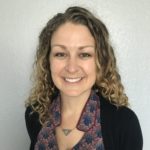 Kerry Hastings is TFN’s program lead for Urban Water Funders and a program manager for Smart Growth California, a TFN initiative.
Kerry Hastings is TFN’s program lead for Urban Water Funders and a program manager for Smart Growth California, a TFN initiative.
Featured photo credit at top: US Water Alliance/ @USWaterAlliance

